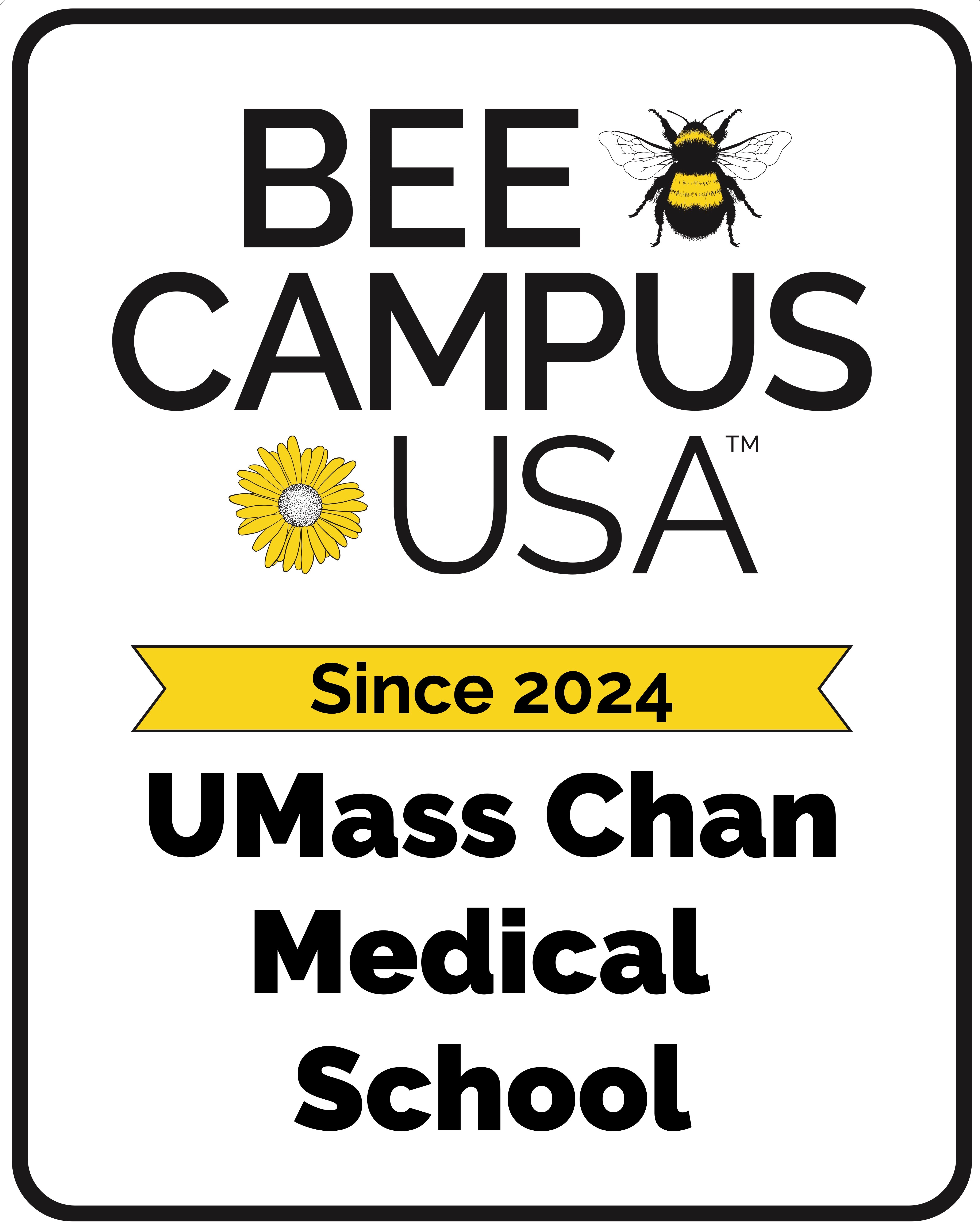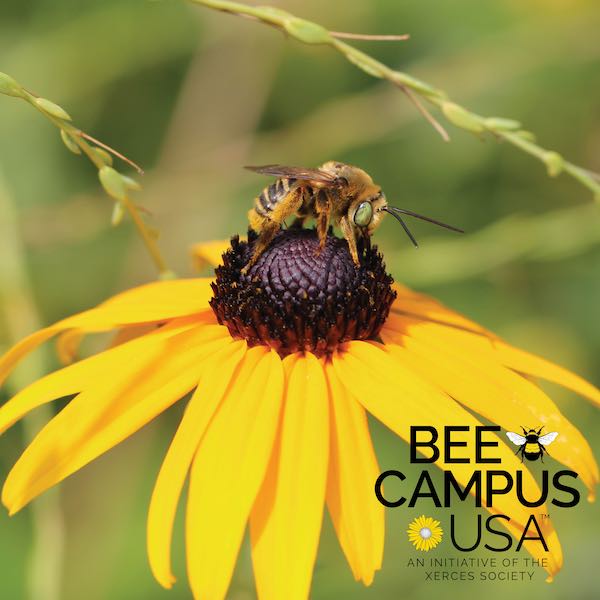UMass Chan is a Bee Campus
 UMass Chan Medical School is now a certified Bee Campus, meeting standards set by a national organization to help sustain pollinators for their essential role in the health of the environment.
UMass Chan Medical School is now a certified Bee Campus, meeting standards set by a national organization to help sustain pollinators for their essential role in the health of the environment.
“This is great news,” said Tess Grynoch, research data and scholarly communications librarian at the Lamar Soutter Library, and co-chair of the UMass Chan Pollination Association. “This certification recognizes UMass Chan’s efforts to increase biodiversity on campus and promote a greater sense of wellbeing for the community.”
The Pollination Association was formed in 2023 by a group of students, faculty and staff to create and enhance pollinator habitats on campus by increasing the abundance of native plants and ensuring greater community access to a biodiverse environment. Achieving certified pollinator status is an action item in the “Grounds Management” section of UMass Chan’s Sustainability and Climate Action plan.
“Our association is both proud and honored to not only be the first university in Central Massachusetts to be certified, but the first UMass campus,” said Edward Allison, facilities project manager at UMass Chan and co-chair of the Pollination Association. “We would like to thank all our association members, the Offices of Sustainability and Facilities, and others on campus for their support.”
Allison said the group chose the name “Pollination Association” because while bees are perhaps the best-known pollinators, there are also other important pollinators that need support.
The Bee Campus USA certification program is run by the Xerces Society for Invertebrate Conservation, a nonprofit organization based in Portland, Oregon, with offices across the country. Their mission is to galvanize communities and campuses to sustain pollinators by providing them with healthy habitat, rich in a variety of native plants, and free of pesticides.
 “The program aspires to make people more PC—pollinator conscious, that is,” said Scott Hoffman Black, Xerces’ executive director. “If lots of individuals and communities begin planting native, pesticide-free flowering trees, shrubs and perennials, it will help to sustain many, many species of pollinators.”
“The program aspires to make people more PC—pollinator conscious, that is,” said Scott Hoffman Black, Xerces’ executive director. “If lots of individuals and communities begin planting native, pesticide-free flowering trees, shrubs and perennials, it will help to sustain many, many species of pollinators.”
According to the Xerces Society, pollinators like bumble bees, sweat bees, mason bees, honeybees, butterflies, moths, beetles, flies, hummingbirds, and many others are responsible for the reproduction of almost 90 percent of the world's flowering plant species and one in every three bites of food people consume.
This spring the UMass Chan Pollination Association will plant two raised bed “pilot” gardens on the north side of campus, one near the volleyball courts and another area near the library. “We are doing beds in shade and sun areas as trials this year, and we will go from there,” Grynoch said.
In the fall, the association is planning a seed-saving workshop for the campus, to encourage people to consider expanding native species in their home gardens to support local pollinators.
“We hope our work will inspire those in the community about how they engage with their environment and pursue efforts to preserve and promote a healthier wellbeing,” Grynoch said.
Follow the association at:
https://www.umassmed.edu/sustainability/campus-intiatives/pollination-association/
Join the association’s Teams channel:
Pollination Association | General | Microsoft Teams
